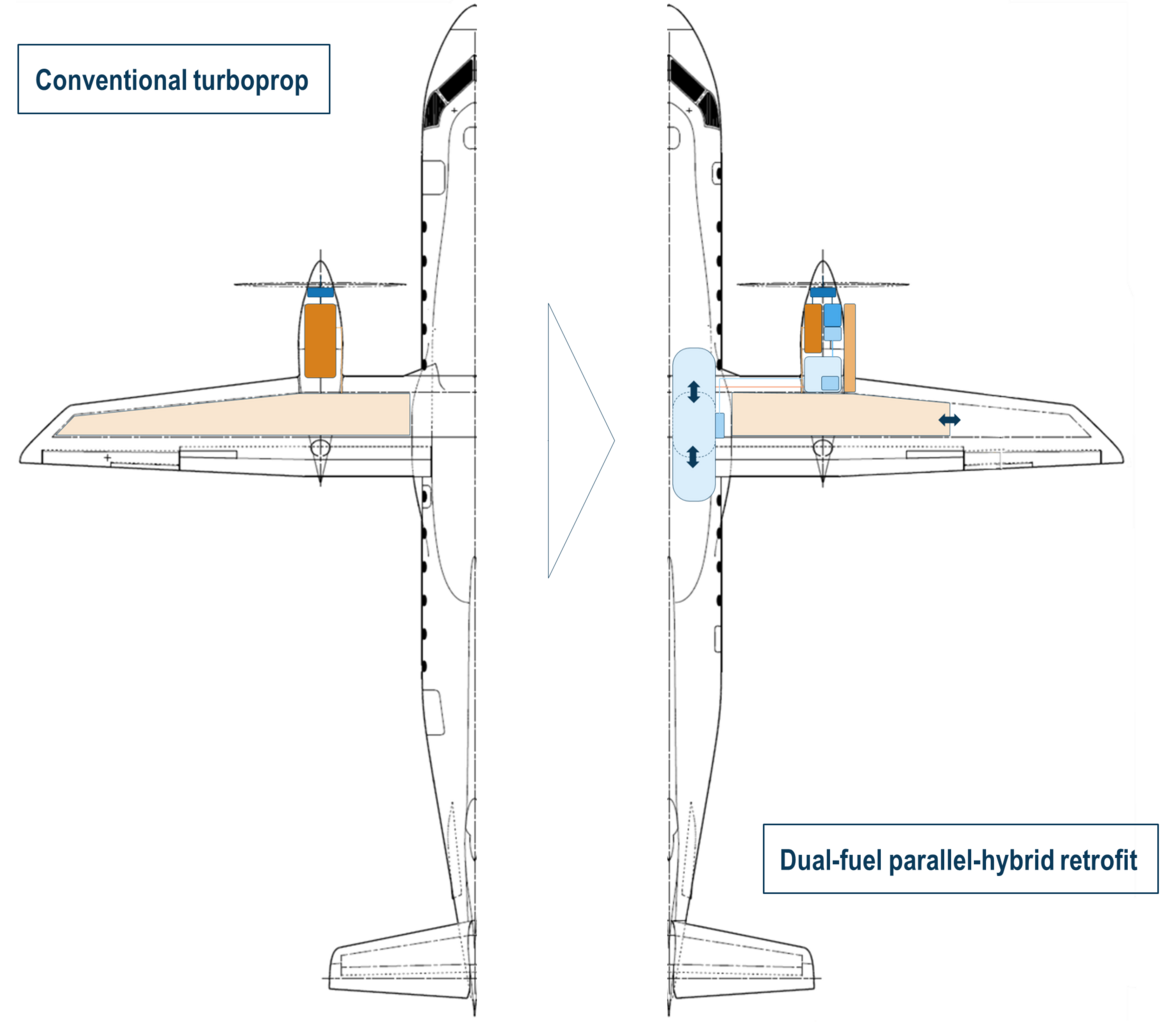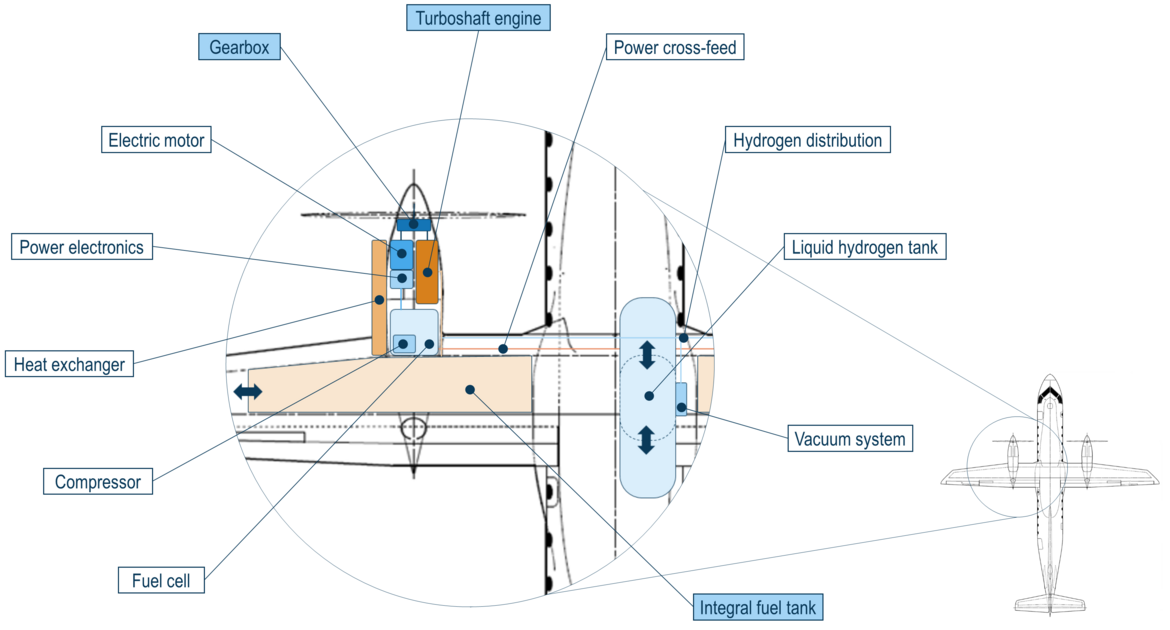
Airframe & Systems Design
Carsten.Rischmueller[at]bauhaus-luftfahrt.net
+49 89 3074 84968
In line with the emission reduction targets set out in Flightpath 2050, a hydrogen fuel cell hybrid-electric main propulsion system for the CS-25 aircraft class is being developed as part of this joint project. The 328H2-FC project will build on the 328eHY flight-test-laboratory platform using the existing hybrid-electric aircraft propulsion system with its two conventional turboprop engines and the two additionally installed electric-driven propellers. An artist’s impression of this test aircraft is depicted at the top of this page. As part of the project, the electric motors will be powered by fuel cells for emission free cruise. These fuel cells will be fed by an on-board liquid hydrogen storage system.
The innovative propulsion concept in the 328H2-FC flight test laboratory makes a significant contribution to CO2 reductions, as the propulsion system is operated in cruise flight via the H2 energy system without any climate-harming emissions, provided that the hydrogen used as fuel is produced from renewable energy sources. The work on the real demonstrator aircraft is amended by several studies investigating the reduction potential on the climate impact of such a regional aircraft as well as studies on a real retrofit product for the year 2035. Moreover, the infrastructure requirements for the demonstrator and a potential future aircraft are being assessed. The continuation of the work of the joint project up to the ground and flight tests is subsequently planned for until 2027.
(Header illustration Deutsche Aircraft)
Bauhaus Luftfahrt will
- analyze and define the typical and design mission based on a thorough market analysis
- model the D328 and D328eco reference aircraft within the aircraft design environment BLADE
- develop the most technically and operationally coherent hybridization strategy for a future hydrogen-hybrid retrofit based on the D328eco (see also further reading down below).
Also in view: the airport infrastructure
In addition Bauhaus Luftfahrt will estimate the necessary infrastructural modifications to the airports that are to be integrated into the route network of future hydrogen-hybrid regional aircraft. Topics such as the supply, storage and transportation of hydrogen are central components. These are supported by volume estimates based on existing and future routes, as well as technical aspects on the aircraft and airport side. In order to ensure a market launch once development is complete, scenarios will be developed and appropriate demonstration routes systematically selected.

The project was funded by the German Federal Ministry for
Economic Affairs and Climate Action under the funding code 20M2109H.



